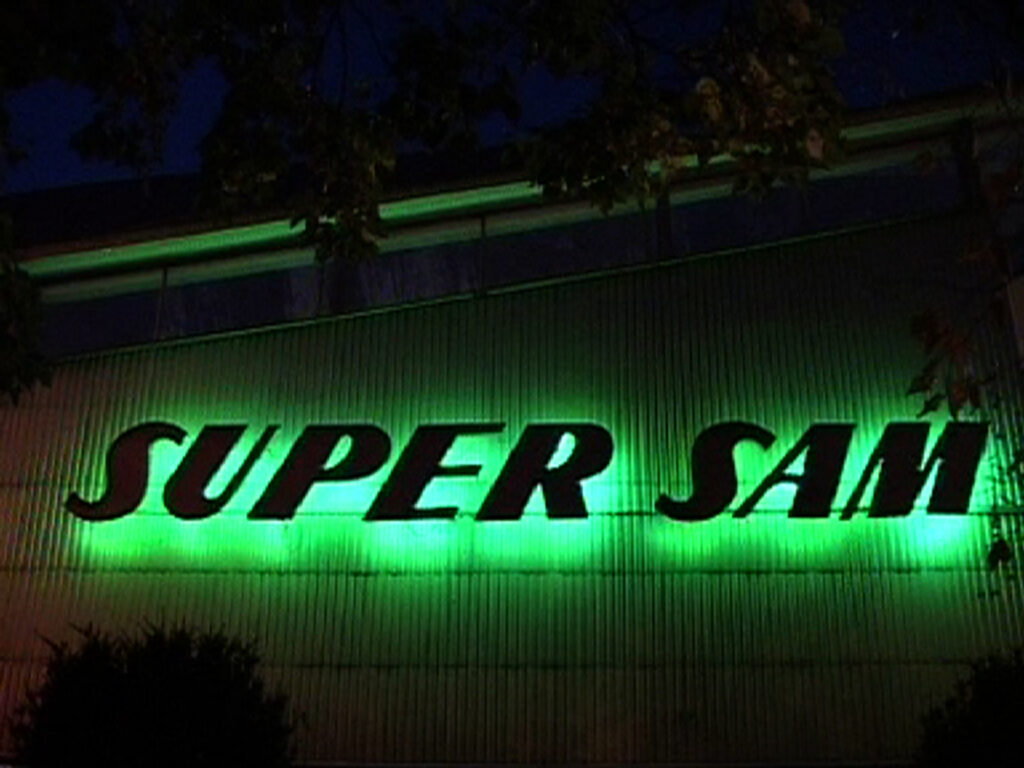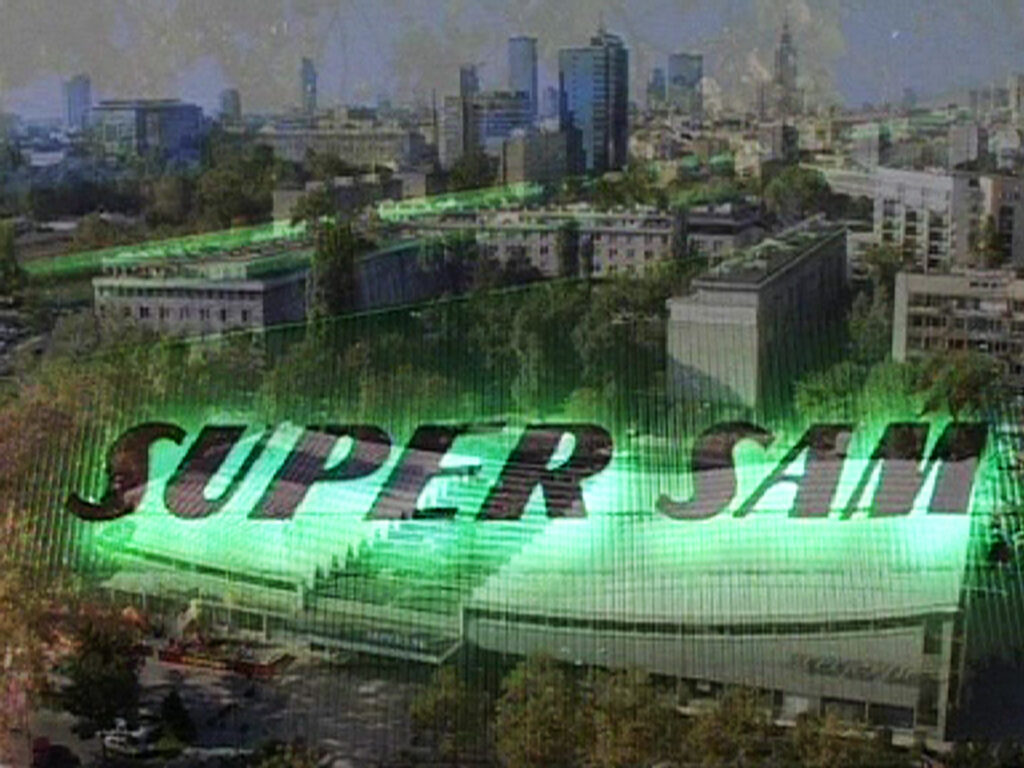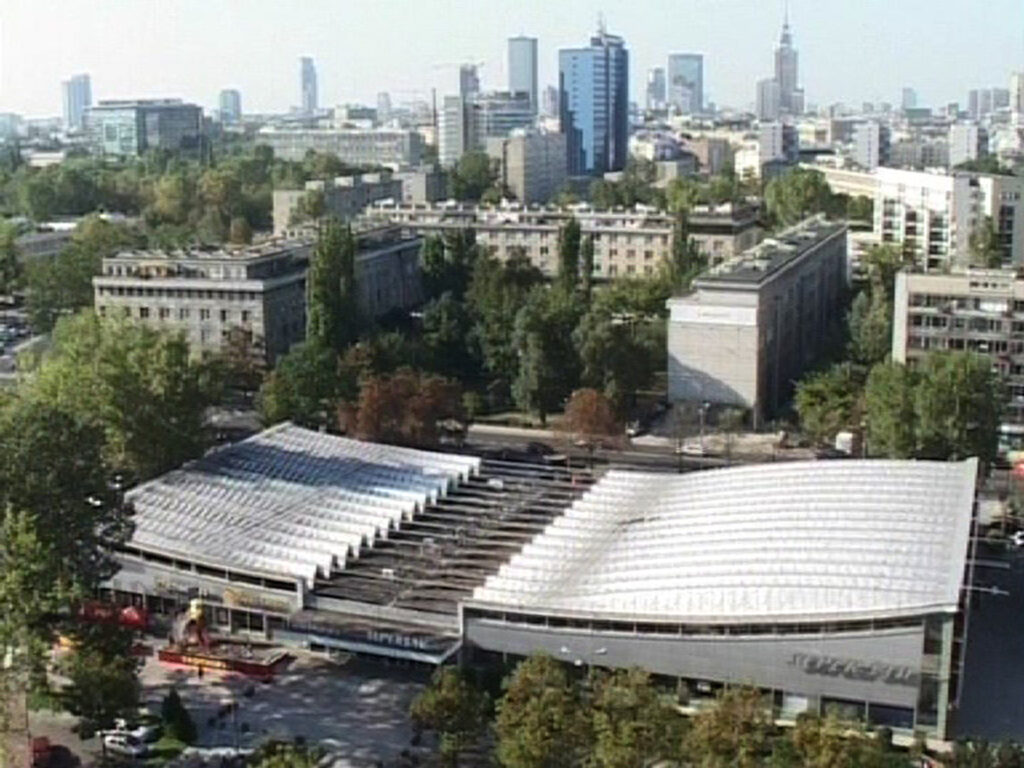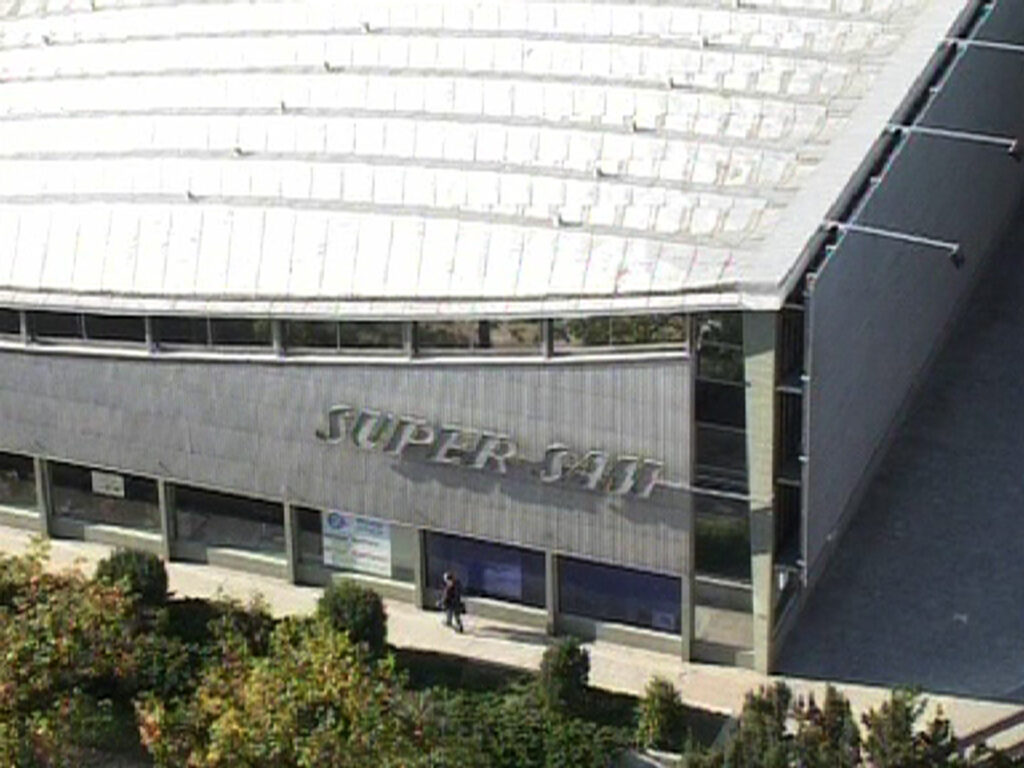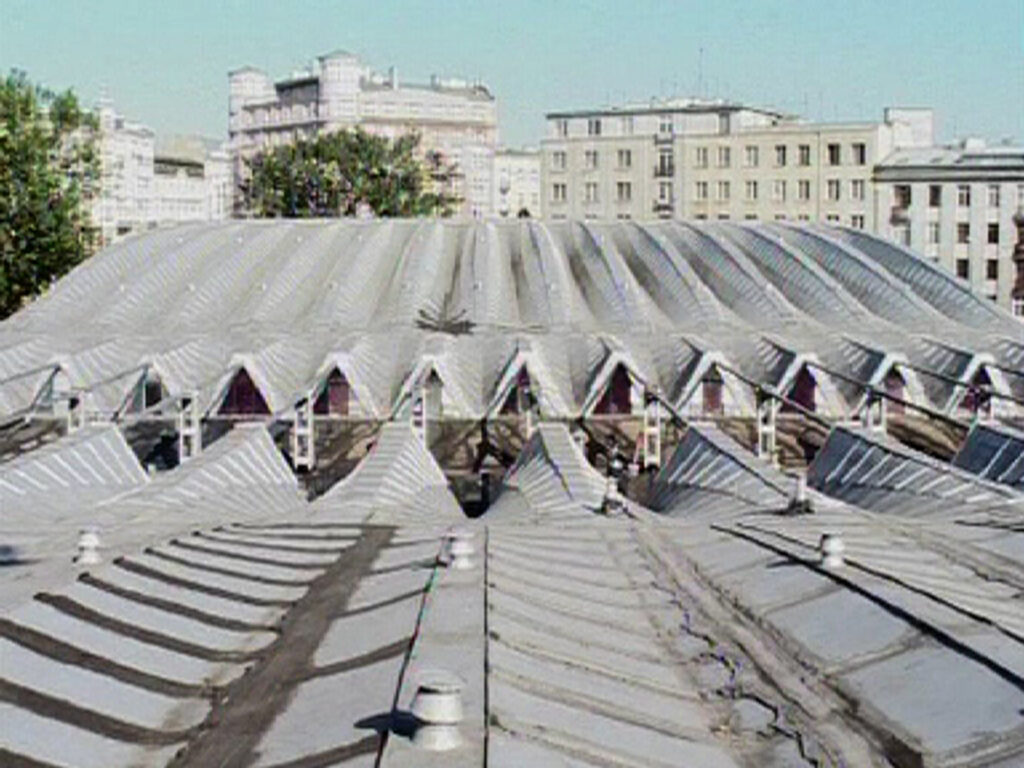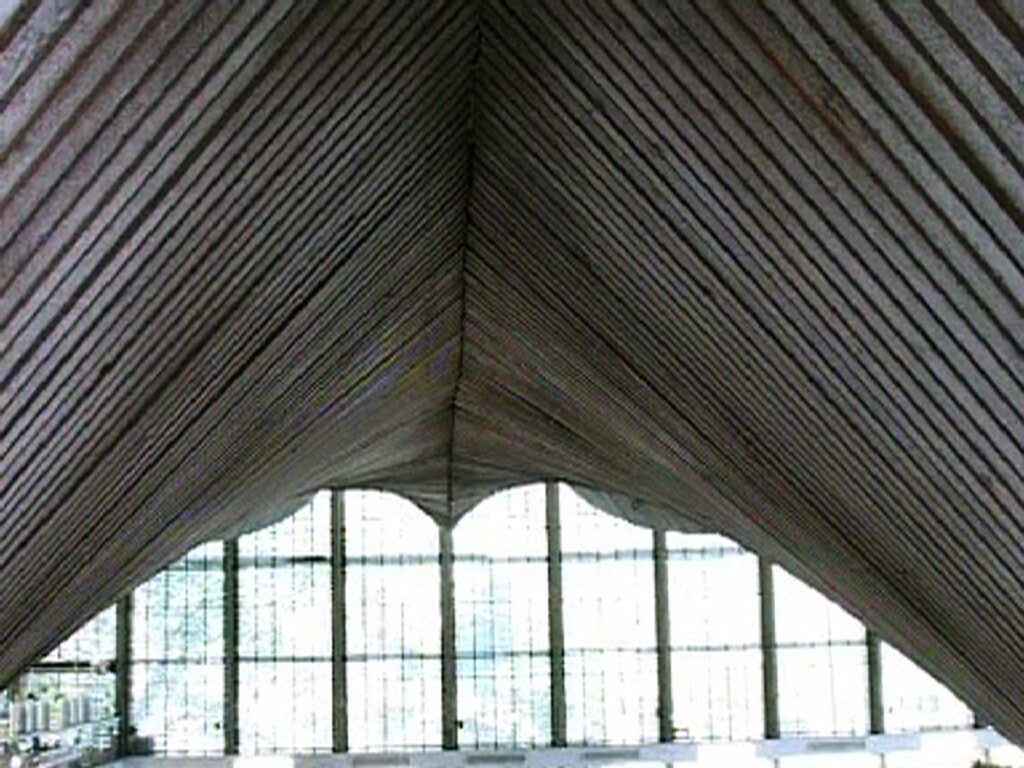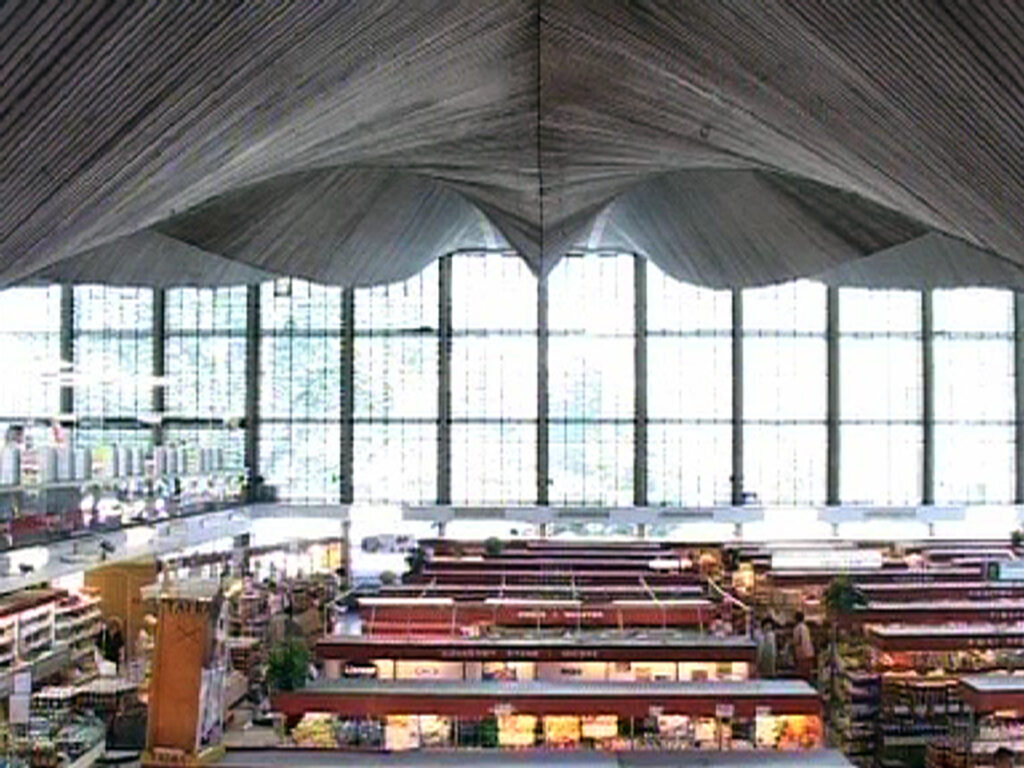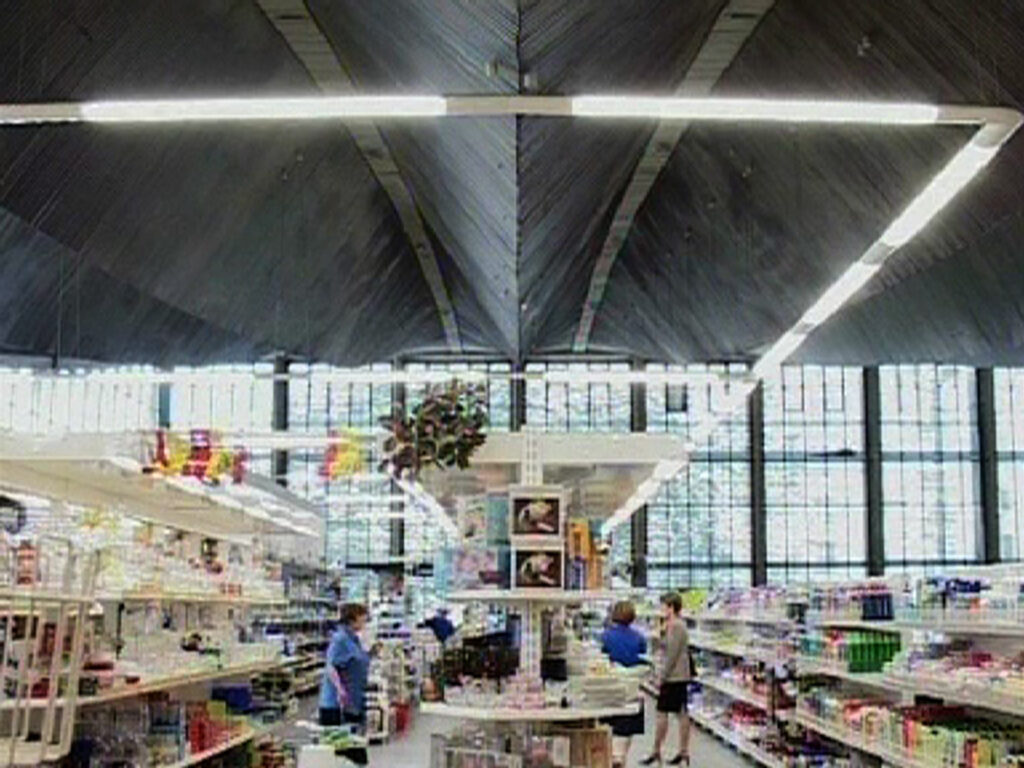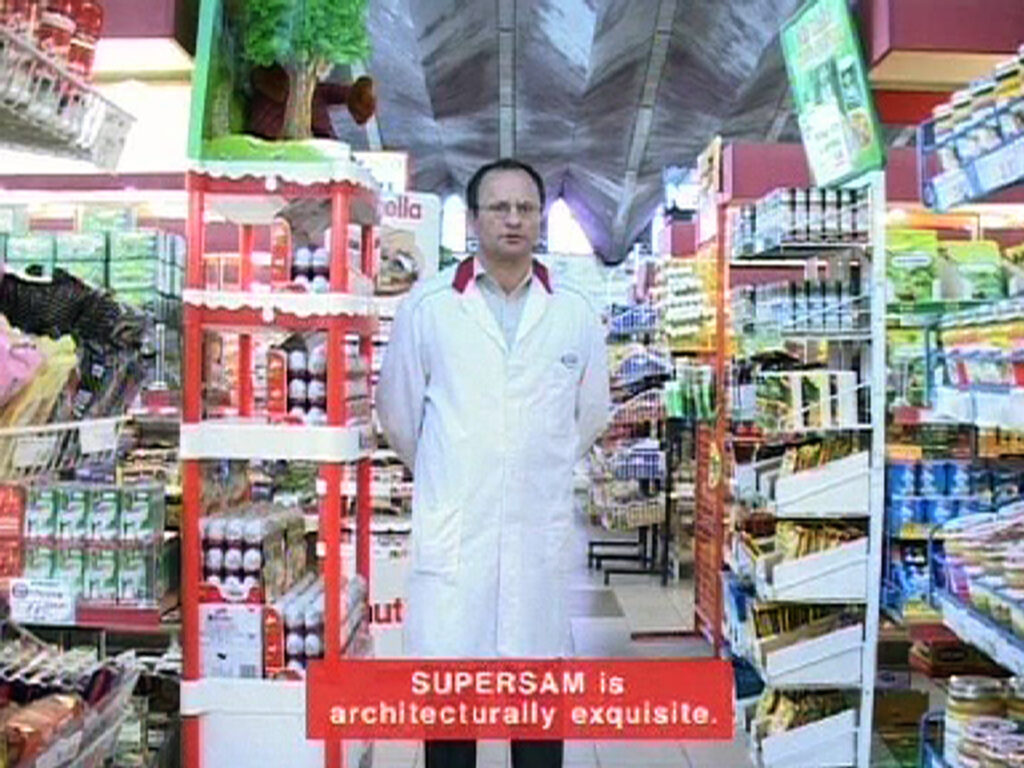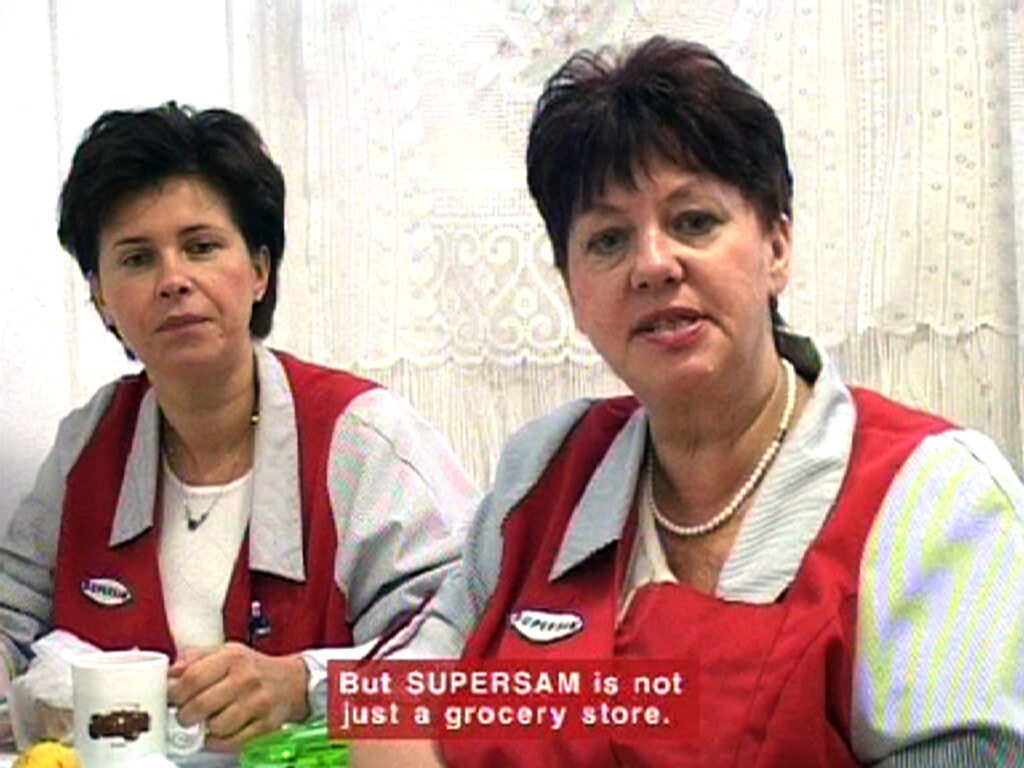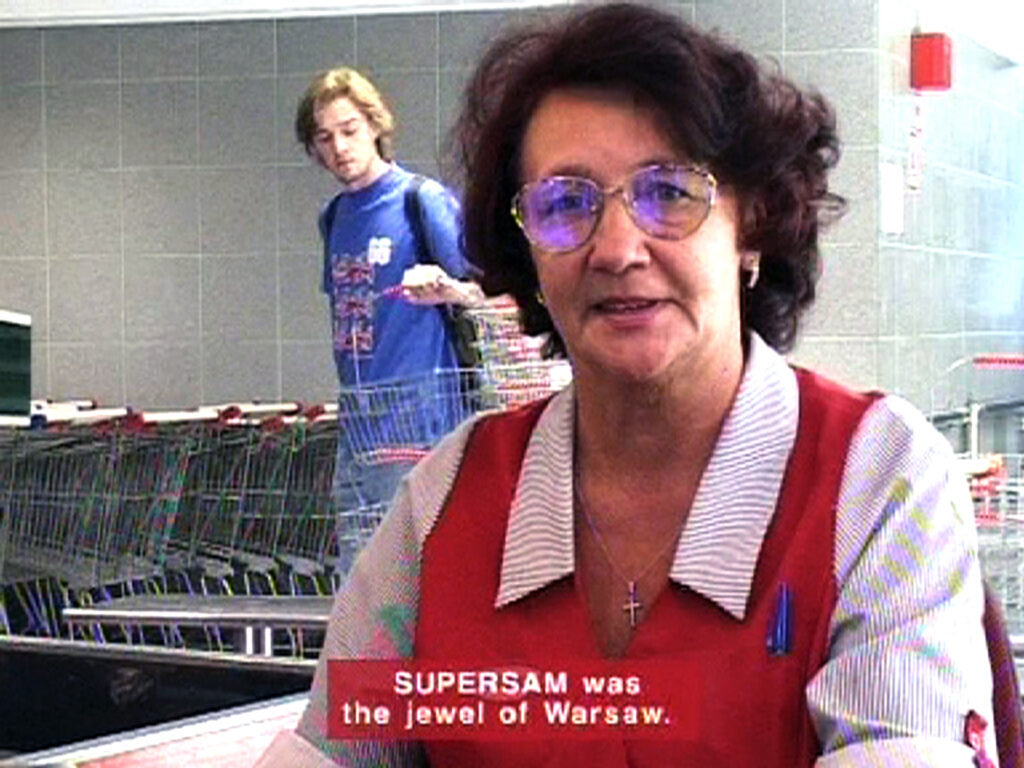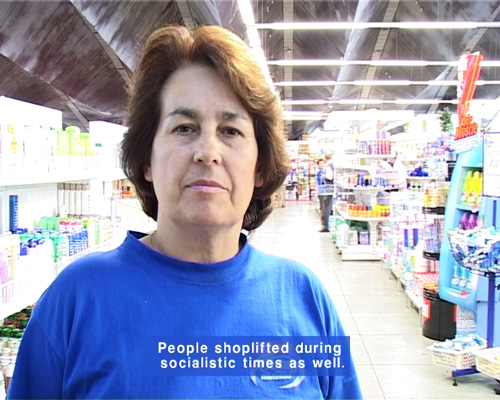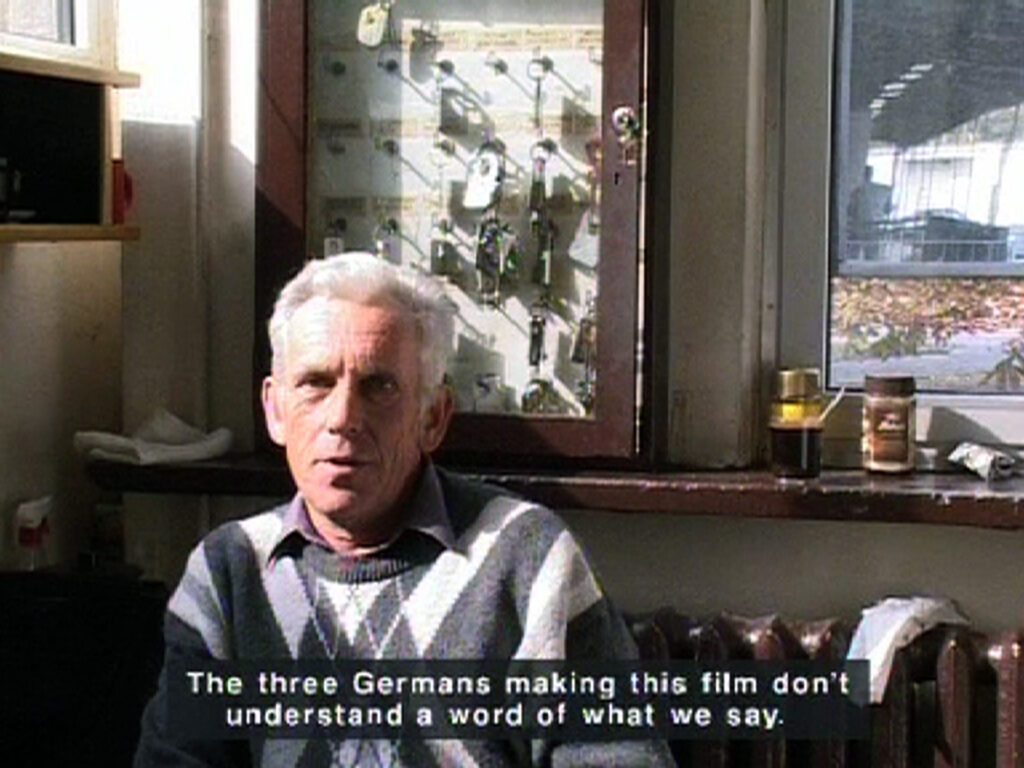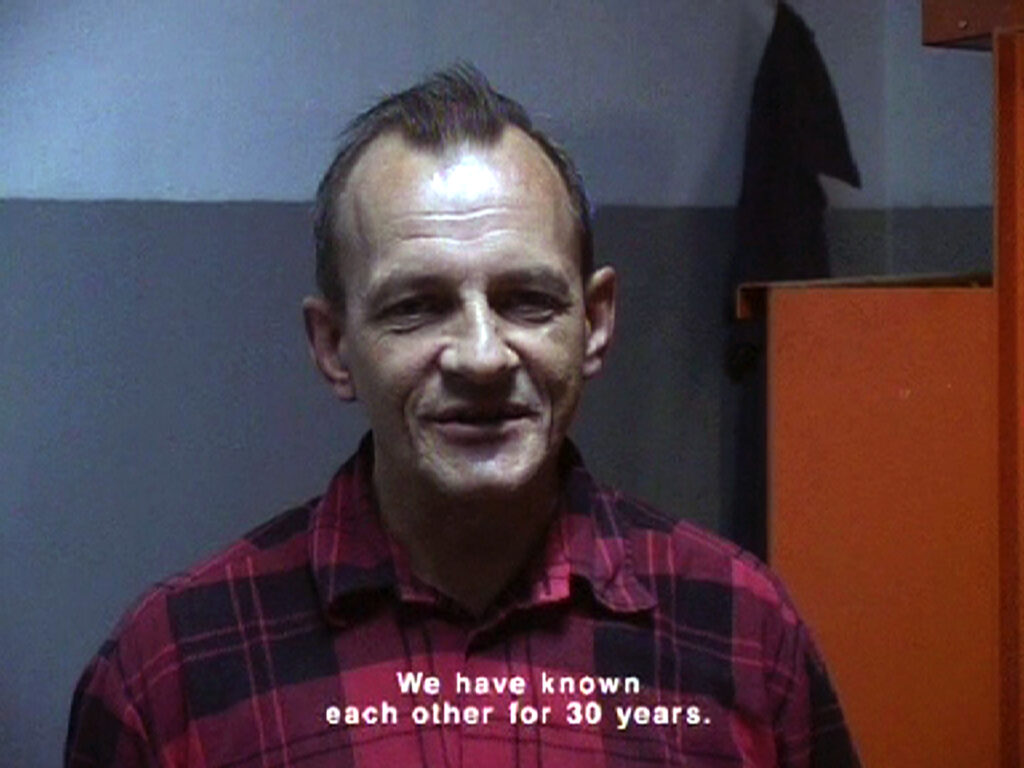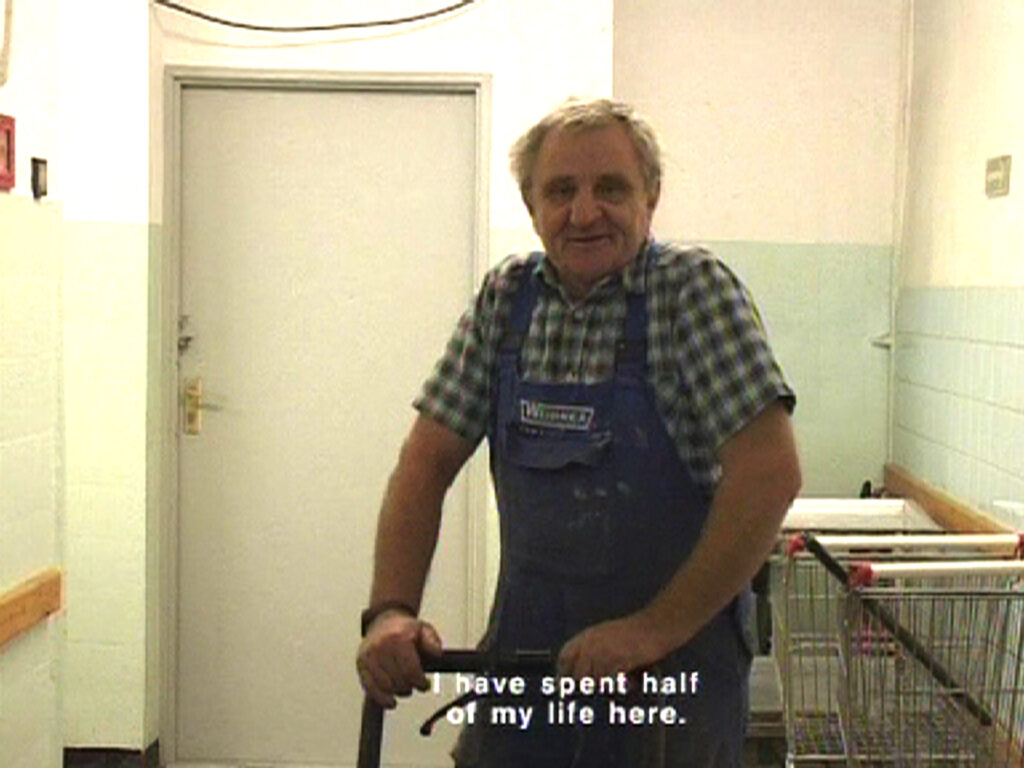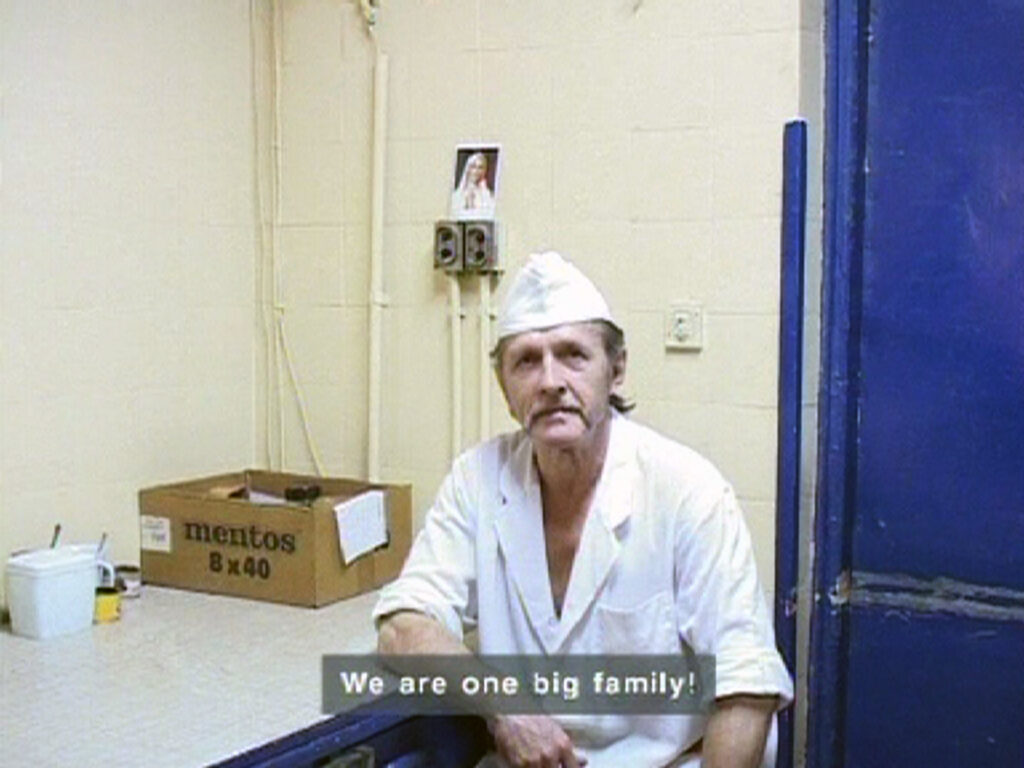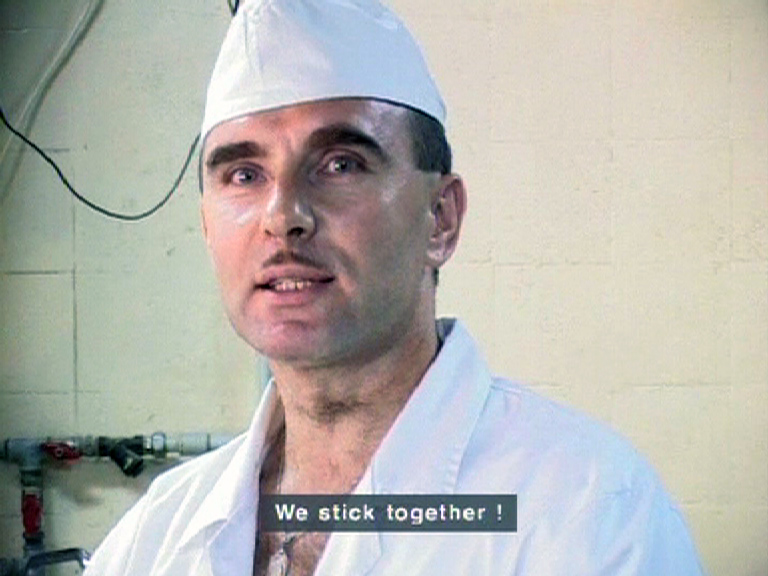Marcus Kaiser, Andree Korpys, Markus Löffler
The Polish word “supersam” means a big self-service store, i.e. a supermarket. An orthographical change or two, or pronouncing the word as though it were English, and one is put in mind of “Uncle Sam”, the quintessence of the “American way of life”.
In the artists’ own words: “Built in the Seventies, “Supersam” was the first big supermarket in Poland, at the time an architectural and commercial island of modernity in the Socialist land. Today it has become more the expression of an untimely, collective consciousness. An impalpable, utopian promise, formerly referring to the future, but now more to the past, still attaches to the word.”
This particular supermarket is the subject of the film shot in in 2002.
An extensive preliminary research was conducted on site. The supermarket’s history, architecture, marketing and sales concepts, employees, their working day, modifications and changes are all surveyed and, often enough, come into the film itself. But right from the start it is clear that what looks like a documentary interview film is in fact elaborately worked out and based on a carefully prepared script including actor parts. Skilfully blending advertising and documentary films, the artists at several points clearly cite the making and structure of their film. The manager, for instance, begins a phone call with one of his employees as follows:
“Hello, Mirek. Listen, our German guests are going to go down there in a minute with Mr. Jurek. Some of our people should say something on camera. They’ve prepared texts for them, short ones … .”
And later an employee is made to say: “The three Germans making this film don’t understand a word of what we say. They came to Warsaw last Tuesday wanting to find out how our former Communist supermarket, our SUPER SAM, actually works.”
Instead of answering “authentic”, personal questions, the employees declaim texts written by the three artists which sound like the supermarket’s own strategic advertising “gospel”. Each of the participants was allowed to select a passage from the script, serving themselves, as it were, from among the set-pieces of a collective consumerist utopia.
A vista shot captures the supermarket’s anomalous architectural appearance in Warsaw’s urban landscape. In rapid sequences of stills and short tracking shots, first the building’s outer shell, then the modern ceiling construction and finally the interior with its giant halls and sumptuous shelf systems and ranges of products are portrayed. Clear and captivating, the images have something of the spirit of Jacques Tati’s “Playtime”. In “Supersam”, too, we end up in the strata behind the façades and stages, wangling our way into corridors among storerooms, offices and delivery areas, the invisible zones with all their quotidian activities.
“Supersam” represents a particularly delicate balancing act between different genres and between the two poles of documentary fiction and fictionalized documentation.
Sabine Maria Schmidt
[[Translation from German by Christopher Jenkin-Jones, Munich]]
